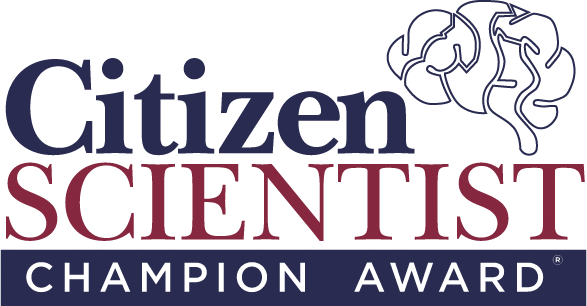A 2020 Citizen Scientist Award Nominee wrote an opinion piece on her reason for getting involved in Alzheimer’s clinical trials and how her trial was her saving grace during the COVID-19 pandemic.
Ann Bellotti is a former clinical social worker and an Alzheimer’s clinical trial volunteer at the Alzheimer’s Disease and Memory Disorders Center (ADMDC) at Rhode Island Hospital. This year, ADMDC nominated Ann for the Global Alzheimer’s Platform Foundation’s 2020 Citizen Scientist “Champion” Award.
Staying intellectually engaged has been a priority of mine my whole life, and it became more important after I was diagnosed with Mild Cognitive Impairment (MCI), an early indicator of Alzheimer’s disease.
Personally, I love a challenge. Though I know there is no cure for Alzheimer’s, I was fortunate to be diagnosed early in the progression of the disease. Social connections, intellectual stimulation and a healthy lifestyle are essential to improving the health of my brain and slowing down my illness. I have dedicated myself to remaining active and involved in my community, and never “folding in” with depression when I forget something.
Since COVID-19 hit, keeping up with my routine has been a lot harder. My volunteer work at the Rhode Island Historical Society and my monthly book club paused because of the pandemic. Thankfully, one important involvement of mine has continued through these past few months — my Alzheimer’s clinical trial.
After I was diagnosed with MCI, I went online to do my own research. To be honest, when I first started reading about clinical trials, I wondered how much of a difference my participation would really make.
Then I met with Dr. Jonathan Drake and Dr. Brian Ott at the Alzheimer’s Disease and Memory Disorders Center (ADMDC) at Lifespan’s Rhode Island Hospital. I was struck by how hopeful they were — not necessarily for finding a cure in my lifetime — but for discovering a breakthrough soon, and meaningfully accelerating the search for a cure.
From them, I learned that each and every clinical trial volunteer really is essential — 90% of Alzheimer’s clinical trials are delayed by slow recruitment. Sadly, Alzheimer’s is a growing problem in the U.S. and across the world. Some 5.8 million Americans. including 24,000 Rhode Islanders like me, are living with the illness, and those numbers are growing every year.
I can’t say enough about the intellectual stimulation I get out of being involved in clinical trials, especially during this pandemic. Once a month, my husband and I go see the wonderful staff at ADMDC and ask all our latest questions. Being a part of a clinical trial provides us with a community of support and a team of world-class doctors who closely monitor my symptoms.
Facing an Alzheimer’s diagnosis is very personal — not everyone will want to dive headfirst into research the way that I did. I can only speak from my experience to say that I find it empowering and hopeful to be a part of a clinical trial. To me, it represents a strong determination to create brighter futures for all who are struggling, as well as their family members. Many people have dedicated their careers to ending this disease, from Dr. Drake and Dr. Ott to my wonderful nurse Kerstin, and these scientists need more volunteers to continue their important work.
Alzheimer’s research has suffered in the last few months. Many clinical trials in places with lots of COVID-19 cases had to stop seeing volunteers. At Rhode Island Hospital, the staff has gone to great lengths to ensure that our trials are able to continue while everyone stays safe and healthy. But even as research centers are safely continuing studies, researchers are having trouble recruiting new volunteers.
I encourage all seniors looking for ways to stay active and engaged to consider volunteering for clinical trials. Each of us has the ability to contribute something amazing and important to medical research that will make the world a better place, and improve our own lives along the way.
Originally posted by The Providence Journal on September 27, 2020.
